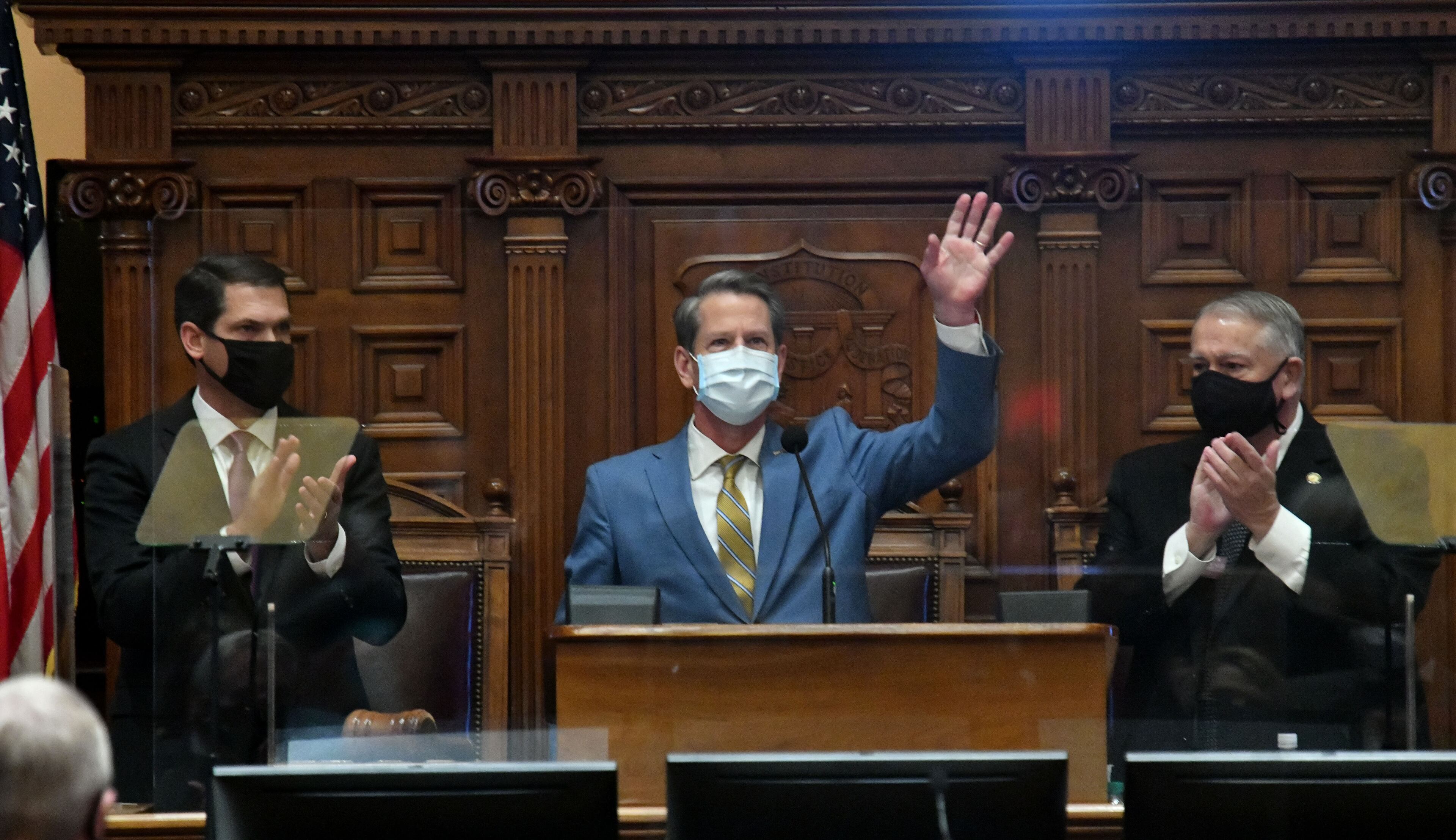Should governor expedite vaccines for Georgia teachers?

In his recent State of the State address, Georgia Gov. Brian Kemp had a lot of good things to say about teachers and their actions during the pandemic.
“So many educators went the extra mile to help the children in their classroom who don’t have the best home life, or maybe it was to do whatever it took to make sure their kids had meals to last them through the day,” he said. Because “the great men and women running Georgia’s schools didn’t miss a beat,” Kemp announced a one-time educator bonus of $1,000.
Here is what the governor didn’t announce: When teachers can expect vaccines, a step that could go a long way to calming the debate still raging over whether it’s safe to reopen buildings, a debate that has pitted teachers against parents at times.
Nor, amid his paean to teachers, did Kemp revisit his refusal to issue a statewide mask mandate. Many districts, even those forced into rolling closures by COVID quarantines and staff shortages, still give students a choice in whether to wear masks.

Too many students and their parents are choosing to spurn masks as an attack on their civil liberties. As one Georgia teacher told me, “Other states — even those where kids actually wear masks — have moved teachers forward on the vaccine list. I am 60 years old, teaching every day. Every day, at least one more kid tests positive. No masks. Often, they return to school the next day.”
In a letter dated Sunday, 13 school board members from Atlanta, DeKalb, Gwinnett, Clayton, Cobb and Griffin-Spalding asked Kemp to prioritize vaccinations for school staff, saying “death and hospitalization data cannot sufficiently describe the mental and emotional trauma that our educators face on a daily basis.”
Teachers are not in the first wave of Georgians eligible for vaccines. Georgia added residents 65 and older to the first phase, as did other states, creating a rush on the limited supply that has thousands still trying to schedule appointments. Atlanta Public Schools, Marietta City Schools and the Fulton County Schools arranged special vaccination clinics for employees who were 65 and older. However, the average age of a classroom teacher is 42, so only a small percentage were eligible.
“My concern now is that even if we’re moved up, the availability of the vaccine may make it a moot point,” said Lisa Morgan, president of the Georgia Association of Educators.
The Professional Association of Georgia Educators supports the prioritization of vaccinating front-line school staffs, including teachers, paraprofessionals, bus drivers, custodians, school nutrition workers and substitute teachers, said Margaret Ciccarelli, the group’s director of legislative services. “But when that supply is going to be available is the real rub, and neither school superintendents nor the Department of Education can control that.”
When vaccines become available for educators, DOE wants districts to be ready, so the agency is organizing a working group of superintendents and teacher representatives to highlight possible vaccination models.
Some districts have already sat down with their local public health departments to consider how to vaccinate school staffs, said DOE spokeswoman Meghan Frick. “So that other districts don’t have to reinvent the wheel, we want to be able to share some of that planning and ideas for what the best practices are.”
On Thursday, President Joe Biden signed a new, more aggressive national response to COVID-19, which emphasizes accelerating the pace of vaccinations. In some states, teachers are already eligible for vaccines. Oregon is vaccinating teachers this week before the reopening of school buildings commences on Feb. 15.
The decision of Oregon Gov. Kate Brown to vaccinate the state’s 100,000 school employees before the elderly, people with preexisting health conditions and other groups of non-medical frontline workers met with criticism, especially after the Trump administration said a stockpile of vaccines the states were expecting did not exist. That forced Oregon to delay vaccines for seniors until Feb. 8 and to impose a phase-in that will begin with the seniors age 80 and older initially.
“I made the decision to prioritize our educator personnel because I am absolutely committed to getting our children, our students, back in the classrooms as quickly as possible,” said Brown at a livestream press conference where she faced multiple questions on moving teachers to the head of the line, including whether she was capitulating to the teachers union.
Brown said her motivation was not the adults in the education system, but the children, citing reports she’s hearing of rising suicide attempts and ideation among adolescents.
“We have got to get our children back in school,” said the Oregon governor. “I know families where their 12- and 13-year-olds are attempting suicide. We know our schools are a place of social interaction. They are a place where young people can get their behavioral health and emotional supports met ... our students are struggling ... this was the safest way to get our children back in the classroom.”

